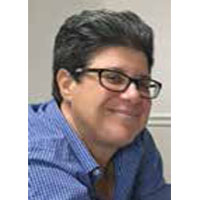
By Michele Karlsberg–
“Who was behind the brutal murder of my great-grandmother?” wondered Wayne Hoffman, a New York City-based journalist and novelist. The true crime was not just a family legend—it made headlines across Canada in 1913—but Sarah Feinstein’s killer had never been found. In The End of Her, Hoffman meticulously researches this century-old tragedy, while facing another: his vibrant mother’s decline from Alzheimer’s. Weaving back and forth between past and present, Hoffman invokes in dramatic detail the life and death of his immigrant great-grandmother in Winnipeg’s North End, and his mother’s downward spiral. In the process, he discovers an extended family that has been scattered across thousands of miles for a hundred years.
Please enjoy an excerpt from The End of Her:
A few hours before the Passover Seder in 2011, Mark and I drove from my parents’ house in suburban Maryland into Washington, D.C.—where we met back in 1989, where we had both lived in the nineties, and where same-sex marriage was already legal. We held a very quick and informal ceremony by the fountain on Dupont Circle: We were in jeans and button-down shirts, and our officiant was dressed just as inconspicuously. (Mark had found him online, and I had laid out a few requirements for our bare-bones nuptials: “No vows, no God, and if you show up wearing any kind of collar or robe, I’m leaving.”)

The ceremony itself lasted about five minutes. I read a poem by Cummings, Mark read a poem by Whitman, and we exchanged rings—one he’d had made for me in Oaxaca, one I’d bought for him in Jerusalem. There was so little pomp and circumstance, it was hard for passersby to realize what was happening. In fact, a group of tourists behind us by the fountain interrupted me in the middle of my poem. “I’m sorry,” said one teenage girl, holding out a disposable camera, “would you take our picture?”
I held up one finger in the air. “Can you give me one minute?” I asked. “I’m in the middle of my wedding.”
That night, surrounded by the usual Passover crowd—plus Mark’s mother, Clarissa, who was visiting from Florida—I started the Seder normally. But when we got the Four Questions, I added a fifth. “Why is this night different from all other nights?” I asked. “Because tonight, we are married,” Mark and I said, holding up our hands, adorned with silver rings.
Clarissa, for whom this was her very first Seder, asked Mark, “Is this a regular part of the Seder?”
“Yes, Mom,” he said with characteristic sarcasm. (His sense of humor—“so dry it could blow away”—is what had attracted me to his personal ad all those years before.) “Every year, a different couple has to get married.”
My mother was caught off guard, but she understood what was happening—which was one of the main reasons we hadn’t wanted to wait any longer, as her dementia continued to worsen. She wasn’t thrilled that she’d missed the wedding. The woman who’d cautioned me years earlier not to “tell everyone” now wanted to spread the news. So I told her we’d plan a brunch a few weeks later, where she could invite people to the house and have a proper wedding celebration.
“Only simchas,” she told guests who came to the wedding party in May—meaning we should always have happy occasions to celebrate.
Wayne Hoffman’s cultural reporting has appeared in “The Wall Street Journal,” “The Washington Post,” “The Village Voice,” “The Nation,” “Billboard,” “Slate,” and dozens of other publications; he is currently Executive Editor of “Tablet” magazine. His novels include “Hard,” “An Older Man,” and “Sweet Like Sugar.” For more information: http://waynehoffmanwriter.com
Michele Karlsberg Marketing and Management specializes in publicity for the LGBTQ+ community. This year, Karlsberg celebrates 33 years of successful marketing campaigns. For more information: https://www.michelekarlsberg.com
Published on March 24, 2022
Recent Comments